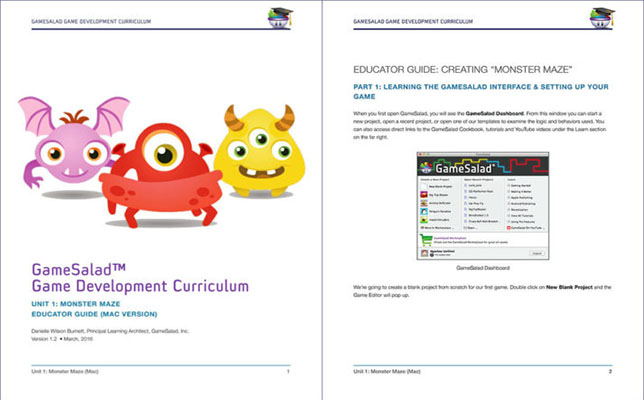Gaming Startup Deploys STEM Initiatives in 223 Schools

Source: GameSalad.
A game and development startup in Texas is utilizing project-based learning (PBL) to teach students programming skills. GameSalad has expanded its STEM-based education initiatives to include 223 schools and approximately 6,700 students.
The startup’s Game Development Curriculum utilizes PBL curriculum to teach core programming concepts through game development. The curriculum introduces programming rules through a visually rich, drag-and-drop interface that fosters creativity, problem solving skills and confidence in STEM concepts. “With a particular focus on empowering diversity and nurturing confidence through project-based learning, GameSalad is preparing students for a savvy future in technology,” according to a prepared statement from the company.
“92 percent of American students play games, yet our nation is behind in training our students to learn computer science,” said Brent Dusing, CEO of GameSalad, in a prepared statement. “At GameSalad, we turn gamers into students. We see students go from little interest in computer programming before they start our program to expressing interest in careers in computer science once they complete the GameSalad course."
To learn more, visit the GameSalad site.
About the Author
Sri Ravipati is Web producer for THE Journal and Campus Technology. She can be reached at [email protected].